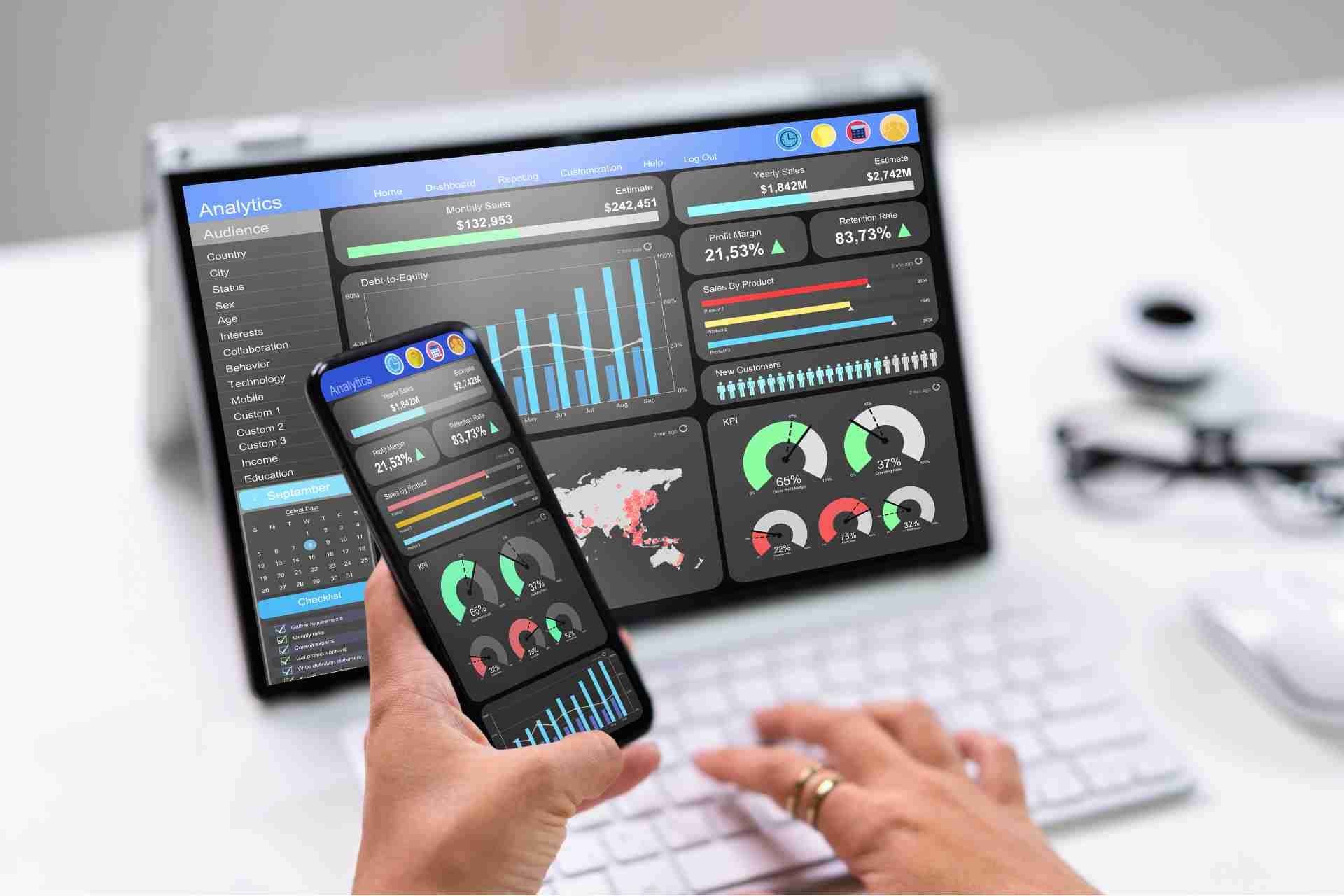The Most Important KPI for SEO to Track

When it comes to SEO, tracking organic traffic is crucial for your site's success. It tells you how well your optimization efforts are paying off and whether your audience is engaging with your content. Understanding the nuances behind this metric can lead to significant improvements in your strategy. So, what factors should you consider to boost your organic traffic and gain deeper insights? Let's explore this further.
Understanding Organic Traffic
When you dive into SEO, understanding organic traffic is crucial because it directly impacts your website's visibility and success.
Organic traffic refers to visitors who land on your site through unpaid search results. These visitors find your content via search engines like Google, and they're often more engaged and likely to convert.
You should track the volume of organic traffic to see how well your SEO strategies are performing. Additionally, pay attention to the keywords driving this traffic, as they help you refine your content strategy.
Monitoring trends over time can reveal what's working and what needs adjustment. By focusing on organic traffic, you can enhance your website's relevance and authority, ultimately leading to lasting online growth.
Why Organic Traffic Matters
Understanding why organic traffic matters can significantly enhance your SEO efforts.
Organic traffic represents users who find you through search engines without paid ads, indicating your content's relevance and quality. When you attract organic traffic, you build credibility and trust with your audience, which can lead to higher conversion rates.
Moreover, organic visitors often engage more, exploring multiple pages and spending more time on your site. This engagement signals to search engines that your site is valuable, potentially improving your rankings.
Additionally, organic traffic is cost-effective; while it requires an investment in time and strategy, it often results in sustained traffic over time.
Ultimately, focusing on organic traffic helps establish a strong online presence and drives long-term success.
How to Measure Organic Traffic
To measure organic traffic effectively, you'll want to utilize tools like Google Analytics and Search Console, which provide valuable insights into user behavior and site performance.
Start by setting up Google Analytics and linking it to your website. You'll then navigate to the "Acquisition" section to view organic traffic data. Here, you can see how many visitors come from search engines, which keywords they used, and which pages attract the most traffic.
In Search Console, check the "Performance" report to analyze clicks, impressions, and average position for your pages in search results. By regularly monitoring these metrics, you can identify trends, assess your SEO efforts, and make informed decisions to optimize your site for better organic traffic.
Factors Influencing Organic Traffic
Several factors influence organic traffic, and recognizing them can significantly impact your SEO strategy.
First, the quality of your content plays a vital role; engaging, informative, and relevant content attracts users and encourages shares.
Second, keyword optimization is crucial; targeting the right keywords ensures your site appears in search results.
Third, your site's loading speed affects user experience; faster sites tend to keep visitors longer.
Additionally, mobile-friendliness is key, as more users browse on mobile devices.
Lastly, backlinks from reputable sites enhance your domain authority, driving more traffic.
Strategies to Improve Organic Traffic
While many factors contribute to organic traffic, implementing effective strategies can make a significant difference in your site's visibility.
Start by optimizing your website for search engines; focus on keyword research to identify terms your audience uses. Create high-quality, engaging content that answers their questions and provides value.
Don't forget to enhance your site's user experience by improving loading speeds and mobile responsiveness.
Build backlinks from reputable sites to boost your authority. Regularly update your content to keep it fresh and relevant.
Utilize social media to promote your articles, driving traffic back to your site.
Lastly, monitor your performance and adjust your strategies based on results. By consistently applying these tactics, you'll likely see an increase in organic traffic over time.
Analyzing Organic Traffic Data for Insights
After implementing strategies to improve organic traffic, the next step is analyzing the data to gain valuable insights.
Start by using tools like Google Analytics to track metrics such as session duration, bounce rate, and page views. These figures reveal how visitors interact with your site.
Look for trends over time; spikes or drops in traffic can indicate the effectiveness of your SEO efforts or highlight issues needing attention.
Segment your audience data to understand which demographics are most engaged and tailor your content accordingly.
Additionally, monitor the keywords driving traffic to identify opportunities for optimization.
Conclusion
In conclusion, tracking organic traffic is crucial for your SEO success. It not only reflects how well your content engages your audience but also highlights areas for improvement. By measuring organic traffic and analyzing the data, you can uncover valuable insights that help you refine your strategy. Remember, a steady rise in organic traffic signals that you're on the right track, so keep optimizing and adapting your approach to boost those numbers even further!






